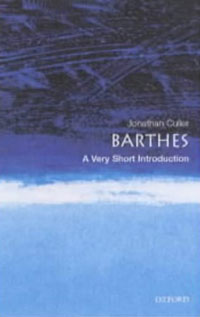Six Books of Rolland Barthes
, Posted by SmartDonkey at 11:28 AM
 "Elements of Semiology" - Roland Barthes
"Elements of Semiology" - Roland BarthesHill and Wang | 1978 | ISBN 0374521360 | 220 pages
Roland Barthes, the French critic and semiotician, was one of the most important critics and essayists of this century. His work continues to influence contemporary literary theory and cultural studies. Image-Music-Text collects Barthes’s best writings on photography and the cinema, as well as fascinating articles on the relationship between images and sound. Two of Barthes’s most important essays, "Introduction to the Structural Analysis of Narrative" and "The Death of the Author" are also included in this fine anthology, an excellent introduction to his thought.
-----------------------------------------------
http://ifile.it/yd1osrf/Barthes%20-%20Elements%20of%20Semiology%201st%20Edition.rar
........................................................................................
"Image Music Text" - Roland Barthes
Essays selected and translated by Stephen Heath
Fontana Press | 1977 | ISBN 0006861350 | 220 pages
Roland Barthes, the French critic and semiotician, was one of the most important critics and essayists of this century. His work continues to influence contemporary literary theory and cultural studies. Image-Music-Text collects Barthes's best writings on photography and the cinema, as well as fascinating articles on the relationship between images and sound. Two of Barthes's most important essays, "Introduction to the Structural Analysis of Narrative" and "The Death of the Author" are also included in this fine anthology, an excellent introduction to his thought.
----------------------------------
http://www.4shared.com/document/cVZBJk_N/Roland_Barthes_-_Image_Music_T.html
.........................................................................
 "Mythologies" - Roland Barthes
"Mythologies" - Roland BarthesSelected and translated from the French by Annette Lavers
The Noonday Press | 25th Eds, 1991 | 164 pages
"[Mythologies] illustrates the beautiful generosity of Barthes's progressive interest in the meaning (his word is signification) of practically everything around him, not only the books and paintings of high art, but also the slogans, trivia, toys, food, and popular rituals (cruises, striptease, eating, wrestling matches) of contemporary life . . . For Barthes, words and objects have in common the organized capacity to say something; at the same time, since they are signs, words and objects have the bad faith always to appear natural to their consumer, as if what they say is eternal, true, necessary, instead of arbitrary, made, contingent. Mythologies finds Barthes revealing the fashioned systems of ideas that make it possible, for example, for 'Einstein's brain' to stand for, be the myth of, 'a genius so lacking in magic that one speaks about his thought as a functional labor analogous to the mechanical making of sausages.' Each of the little essays in this book wrenches a definition out of a common but constructed object, making the object speak its hidden, but ever-so-present, reservoir of manufactured sense."--Edward W. Said
--------------------------------
http://rapidshare.com/files/42927429/Roland_Barthes-Mythologies.pdf
...................................................
“Roland Barthes" - Graham Allen
Routledge | 2003 | ISBN: 0415263611 | 176 pages
Graham Allen's text on Roland Barthes is part of a recent series put out by the Routledge Press to explore the most recent and exciting ideas in intellectual development during the past century or so. To this end, figures such as Martin Heidegger, Paul Ricouer, Sigmund Freud, Friedrich Nietzsche, Jacques Derrida, Michel Foucault and other influential thinkers in critical thought are highlighted in the series, planned to include more than 21 volumes in all.
Allen's text, following the pattern of the others, includes background information on Barthes and his significance, the key ideas and sources, and Barthes' continuing impact on other thinkers. As the series preface indicates, no critical thinker arises in a vacuum, so the context, influences and broader cultural environment are all important as a part of the study, something with which Barthes might agree, although many of the thinkers in this series are also influenced greatly by thinkers at odds with Barthes ideas.
-----------------------------------------------
http://depositfiles.com/en/files/8678671
...............................................................................
“Barthes: A Very Short Introduction" - Jonathan Culler
Oxford University Press| 2002 | ISBN: 0192801597 | 152 pages
Roland Barthes was the leading figure of French Structuralism, the theoretical movement of the 1960s which revolutionized the study of literature and culture, as well as history and psychoanalysis. But Barthes was a man who disliked orthodoxies. His shifting positions and theoretical interests make him hard to grasp and assess. This book surveys Barthes' work in clear, accessible prose, highlighting what is most interesting and important in his work today. In particular, the book describes the many projects, which Barthes explored and which helped to change the way we think about a range of cultural phenomena--from literature, fashion, wrestling, and advertising to notions of the self, of history, and of nature.
-------------------------------------------------------
http://depositfiles.com/en/files/5339071
........................................................................................
Roland Barthes by Roland Barthes
Translate by Richard Howard
UCLA Press | ISBN: 0520087836 | 1994 | 186 pages
Roland Barthes was one of France's leading literary critics and cultural commentators who died in 1980. This work, first published in 1977 has come to be seen as one of the author's key works. It is a kind of autobiography, both personal and theoretical, giving an account of his tastes, his childhood, his body then and later in life, his education, his passions and regrets. Other works by Roland Barthes include "Writing Degree Zero", "The Pleasure of the Text", "S/Z", "On Racine", "Elements of Semiology" and "Mythologies" and "Camera Lucida".
-------------------------------
http://www.megaupload.com/?d=GA81UBXC
.......................................................





ga ada linknya... :( bagaimana inih???
tautannya sudah tersedia. silahkan coba unduh. jika tautannya (sudah) mati, informasikan lagi kepada saya :)
Aaaahhhh...!!
Kakek Barthes is in da house!!
Aku informasikan ini ke temanteman bimbingan dan dosenku pembimbingku ya? Biar ga susah lagi nyarinyari. Hehehe.
Blog ini sungguh bermanfaat dan penting!! SUMPRIT!!
Nuhun Daus,
:)
thx, bumi. syukurlah kalau ini bisa bermanfaat :)
camera lucida ada?
aku baru bisa menemukan camera lucida yang berbahasa rusia. tertarik?